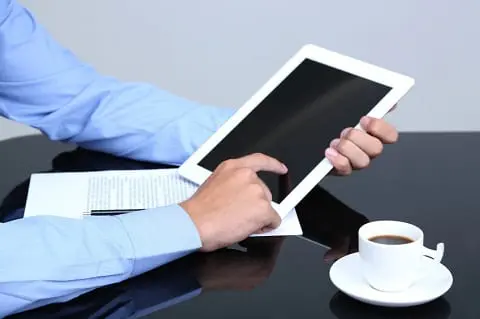
For real estate agents, our tech — smartphones, iPad, laptop, and other gadgets — functions as assistant, navigator, database and business hub.
When we develop habits and routines with apps and programs that serve our business well, it’s easy to ignore the chatter about new technology, as so many of these next-big-thing trends flare, then fizzle. As Orlando-based Realtor Amy Moline says, “It can be really difficult to find what technology will most help your business, especially when there are so many options and so many companies advertising to use their software.”
But as 2014 comes to a close, five technology trends show staying power and point the way to more revenue in 2015. In this article, we’ll discuss the new tools that deepen client relationships, keep Realtors safe, and make the selling process more lucrative and efficient.
Shifting Sway From Geolocating Properties
In the past, geolocation, or the act of tagging images with their geographic location so they could be displayed on a map or in a search engine, was all the rage. But safety concerns — highlighted by the recent murder of an Arkansas real estate agent while she was showing a home — have agents stripping their images of geo-data so that their immediate whereabouts remain unknown.
Because the default for most smartphones and many digital cameras is to embed this data into photographs, agents must use apps or a program to remove this information themselves. Another related trend? Agents installing tracking and safety alert apps, like the bSafe app or SOS – StaySafe app, on their phones to signal for an emergency.
App-ing Yourself
While you can’t sit next to your clients every time they search for properties on their computer or smartphone, apping yourself could be the next best thing.
Some brokerages offer this technology — which allows clients to download, search and save properties — to their agents, which then offers agents information about those searches. Whatever stage the clients are in the sales funnel — from potential clients early in their search or clients who can’t seem to nail down their desired home features — these apps contain a wealth of actionable data and brand agents as experts in their local neighborhoods. Your brokerage doesn’t offer this service? Other app creation engines, some of which are easy drag-and-drop, make creating your own app a snap.
Wearing Tech
As 2015 shapes up to be the year of the Apple watch, look for the development of new apps that real estate professionals can use to easily access their notifications, social media, maps and more. Apple’s new functionality makes Google Glass now the “old” tech. For now at least, Google Glass gives prospective homebuyers the ability to scan yard signs and receive immediate information, display maps and overlays and hear their agent’s voice and expertise as they walk through a property on a Google Glass-guided tour. As these gadgets continue to infiltrate the mainstream, look to more adoption from agents, particularly in markets where technology reigns supreme.
Automating the Sales Funnel
As potential homebuyers and sellers slide from the role of casual contact to client, real estate agents must manage their needs and organize the sales process. Enter automation. HomeSmart International founder Matt Widdows explains: “Automated marketing is a tool we’ve found useful at HomeSmart. When a Realtor puts their listing into (the) MLS, we can automate all of their marketing for them — from listing flyers to single property websites, virtual tours and even YouTube videos. Then the materials are readily available for clients to access across different platforms.”
Automation can extend to email marketing as well; once clients perform specific actions on your website, they are automatically sent a series of emails to move them further down the sales funnel.
Amy Moline of Keller Williams Classic Realty uses automation in a slightly different way: once under contract, Moline uses software to track the closing transaction in real time. “This keeps everyone informed without needing to make four to five phone calls,” Moline says. “Because you’re not spending all of your time managing the contract to close phase, this equals more time spending with qualified buyers and sellers. It’s a win-win.”
Other apps create workflows for each client — from list to close — so you can always see where you are in the process and what tasks are left to do.
Whatever technology you use, on whatever platform, don’t forget this simple tip from Moline: “The best technology that is the most cost-effective way to attract business? Your cell phone. Use it and your business will jump to new heights. I try to have at least 20 real estate conversations per day, five days per week. If you do that, you will grow an amazing real estate business.”

